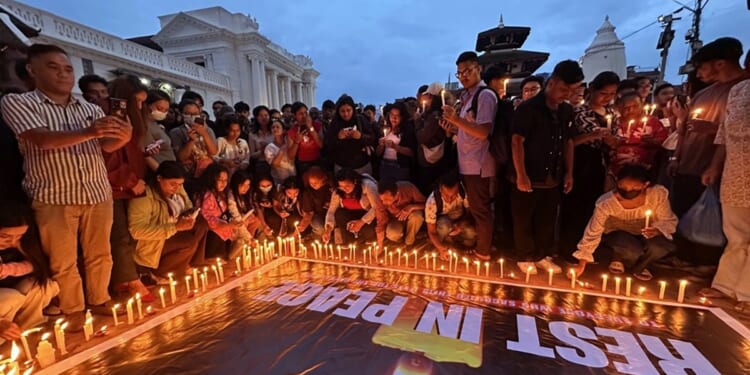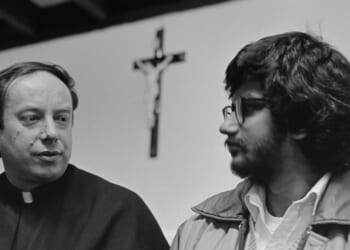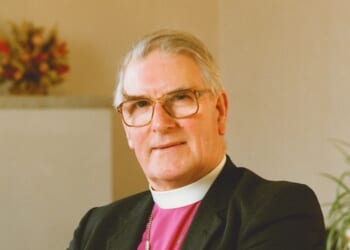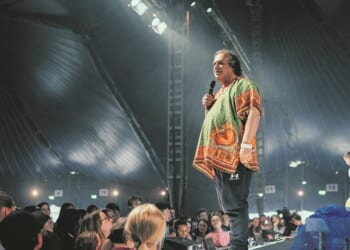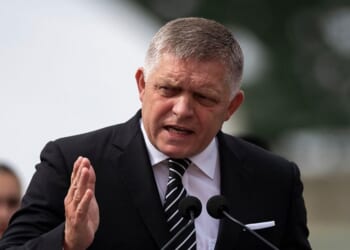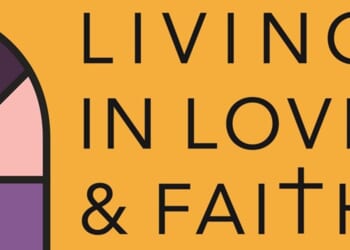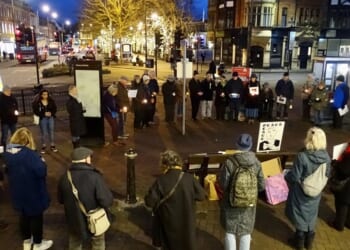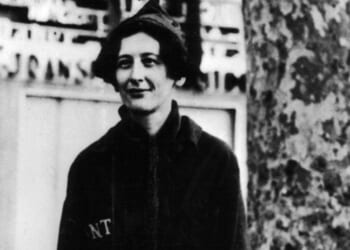AS NEPAL braced for what was expected, on the evening of 7 September, to be a minor youth protest, Dr Anaya Joshi, a Christian theologian based in Kathmandu, was waiting to board her flight to Dubai. In the airport lounge, she struck up a conversation with a retired Nepalese parliamentarian.
When she asked him about the next morning’s protest, he brushed it off with a confident laugh. “Maybe a few hundred will show up,” he predicted. “They’ll shout some slogans, post selfies, and go home.”
By sunrise the next day, that prediction had been proved wrong.
More than 10,000 young people — many in their teens and early twenties — had gathered across Nepalese cities, chanting their demands for accountability, transparency, and justice. What began as a peaceful demonstration turned into the country’s most explosive political moment in recent memory. By nightfall, fires engulfed parts of the capital, and, within days, 74 lives had been lost. The Prime Minister stepped down. A former Chief Justice was sworn in as interim leader. The country’s streets, long subdued by apathy, now echoed with cries for change.
In the midst of the turmoil, Nepal’s small but growing Christian community was being pulled in two directions: towards solidarity with a generation demanding reform, and towards caution born of historical persecution. “We’ve lived in the shadows for so long,” the pastor of a church in Lalitpur, the Revd Michael Thapa, said. “But silence is not an option when the streets are burning and young people are bleeding.”
The Christian population — estimated at between 500,000 and almost a million — has grown rapidly over the past two decades, and yet remains a minority often targeted by restrictive laws and suspicion. Churches continue to live with anti-conversion laws that are vague enough to criminalise simple acts of evangelism.
Still, as violence spread and fear loomed large, churches across the different denominations opened their doors — not to stage political resistance, but for prayer.
The protests were a Generation Z roar, mobilised largely through online platforms such as Discord, Reddit, and Telegram. Social-media bans only added fuel to the fire. What began as a digital uprising quickly became physical.
In Kathmandu, a 24-year-old university student, Ritesh Gurung, who is a practising Christian, coordinated first-aid supplies and updated foreign journalists by means of VPNs. “It felt like the whole country woke up overnight,” he said. “But we also knew that once violence entered the scene, things would spiral.” Mr Gurung insists that most demonstrators, including Christians, were committed to peaceful resistance. “Our faith teaches us to stand for truth, but not through violence,” he said. “So we used what we had: our networks, our voices, and our prayers.”
In Pokhara, Christian volunteers set up makeshift food stations. In Biratnagar, church youth helped clear debris after clashes. Special services were held — mourning the dead, comforting the wounded, and pleading for peace.
For many Nepali Christians, the uprising was a flashpoint at the intersection of political discontent and religious vulnerability, pointing to a fragile freedom. “The fear was very real,” said Pastor Rina Lama, whose small congregation in western Nepal temporarily closed its doors after local men threatened to burn the building. “One rumour, one false accusation, and we could be blamed for things we had nothing to do with.”
Nepal’s Christian community has long lived under the shadow of such threats. In 2017, anti-conversion laws made it illegal to “hurt religious sentiment” — a clause often weaponised against Christians. Since then, foreign missionaries have faced increasing scrutiny, and even local pastors report being questioned for baptising new believers.
Despite this, moments of unity emerged amid signs of solidarity and change. When flights were grounded and violence shut down roads, a Christian family in Bhaktapur rode motorbikes through flaming intersections to rescue two foreign aid workers stranded at the airport. They sheltered them in their home for days as curfews blanketed the city.
“It was risky, yes,” the father, Suraj Maharjan, said. “But faith means showing up when others can’t.”
Meanwhile, the newly appointed interim Prime Minister, the former Chief Justice Sushmita Kandel — a figure widely respected for her impartiality — has signalled openness toward religious freedom. Christian leaders cautiously welcomed her appointment, but remain wary of how long reforms will last.
“This is a window, not a guarantee,” said Rajeev Bhusal, a Christian lawyer who helps register churches as public trusts. “We must walk wisely.”

